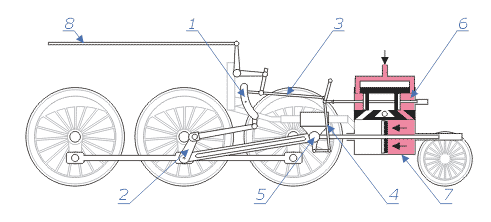Ubisoft Introduces AI Governance in Captain Laserhawk Blockchain Game

Ubisoft Entertainment S.A. has announced an innovative integration of artificial intelligence (AI) within its blockchain game, "Captain Laserhawk: The G.A.M.E.", which will enable AI agents to autonomously vote and make governance decisions on behalf of players. This development, unveiled during the ETHCC event in Paris, signifies a notable shift in the gaming landscape, blending decentralized storytelling with AI-driven decision-making processes.
The AI agents are linked to NFT-based characters, known as Niji Warriors, which are tied to player ownership and actions in the game. Each of the 10,000 NFTs will have the capability to act autonomously, analyze proposals, cast votes, and log their actions on-chain, thereby creating a unique governance model that reacts to player input. This innovation is a collaboration with French AI developer LibertAI, whose technology underpins the AI governance framework.
Didier Genevois, Technical Director and Executive Producer at Ubisoft, explained the concept, stating, "What’s changed since Denver is that NFTs and PFPs can now vote on Snapshot. The NFTs are initialized with personas tied to their metadata—this is the first iteration—so they have distinct personalities. If you don’t vote, your NFT will vote based on that persona and explain why." This initiative aims to connect player actions within the game to broader governance decisions, with potential implications for how the game evolves over time.
Set against the backdrop of Ubisoft's animated series, "Captain Laserhawk: A Blood Dragon Remix", the game features a dual experience: a fast-paced, top-down multiplayer shooter and a text-based governance simulator. While the shooter emphasizes action and crossover with other Ubisoft franchises, the upcoming governance simulator focuses on player decisions that influence the narrative and gameplay dynamics.
Jonathan Schemoul, Lead Contributor at LibertAI, emphasized the experimental nature of this governance system, highlighting that the decisions made by players will significantly impact the evolution of the game. He stated, "The goal is to connect in-game actions to governance. Unlocking content in the text-based game can influence how your Niji votes in the future." This approach not only personalizes the gaming experience but also positions players as active participants in the governance of the game world.
The integration of AI agents raises critical questions regarding the balance of agency between AI and human players. Genevois noted, "It’s important for us to leave room for humans. If you want to have an impact and you’re concerned, then you can vote, propose ideas, and find a way to push back against a world ruled by AI agents." This tension between AI autonomy and player control is central to the game's design philosophy.
To ensure a safe and engaging experience, Ubisoft and LibertAI have implemented safeguards to prevent inappropriate content generated by AI. Genevois assured that the AI models used in "Captain Laserhawk" are curated to avoid any uncensored outputs that could lead to negative experiences for players, particularly younger audiences.
Moreover, the game is designed to cater to players of varying skills, adapting its difficulty and dialogue in real-time based on individual player abilities. Genevois elaborated, "If you don’t know anything about hacking, you can just say, ‘I want to enter the system,’ and the LLM will guide you. If you’re a real hacker, it will challenge you more." This adaptive gameplay aims to make the experience accessible while still providing depth for experienced players.
In conclusion, Ubisoft's "Captain Laserhawk: The G.A.M.E." represents a pioneering venture into the realm of AI governance within gaming, combining elements of blockchain technology, NFTs, and decentralized storytelling. As the gaming industry continues to evolve, this integration of AI may set a precedent for future developments in player interaction and game governance, inviting further exploration of how technology can enhance narrative and gameplay in a decentralized environment.
Advertisement
Tags
Advertisement





